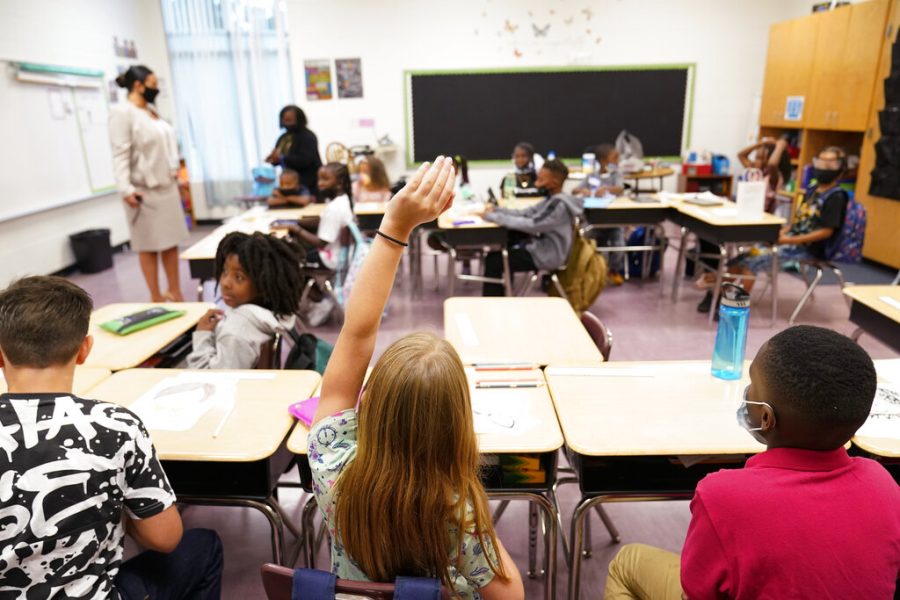The Function of Moms And Dads and Teachers in the Effort to Save Temecula Schools
The Function of Moms And Dads and Teachers in the Effort to Save Temecula Schools
Blog Article
Recognizing the Relevance of Colleges in Kid Advancement and Community Development
Schools' interaction with neighborhood communities via service-learning efforts strengthens the bond in between families and educational organizations. This symbiotic partnership highlights the significance of colleges in supporting energetic citizenship and lifelong knowing routines.
Academic Achievement
Academic success functions as a keystone of kid development, offering the foundation upon which future knowing and success are built. Schools play a crucial function in fostering this scholastic growth, providing structured settings where children can obtain crucial knowledge and cognitive abilities. Standardized curricula make sure that trainees gain proficiency in core subjects such as mathematics, scientific research, and language arts, which are vital for both higher education and learning and specialist opportunities.
Along with presenting basic academic abilities, colleges also grow vital reasoning, analytical capacities, and intellectual inquisitiveness. These cognitive competencies are important for browsing intricate real-world scenarios and adapting to the ever-evolving demands of the modern office. Educators, as facilitators of knowing, use varied pedagogical strategies to satisfy varied understanding styles, therefore optimizing private trainee possibility.
In addition, scholastic success is very closely linked to self-worth and motivation. Youngsters that experience scholastic accomplishments are most likely to establish a favorable self-concept and a long-lasting enthusiasm for learning. Colleges also provide various sources, such as collections and innovation, which additionally boost the educational experience and prepare pupils for a technically sophisticated society.
Social Skill Growth
Beyond scholastic accomplishment, the role of schools in social skill development is indispensable. Schools serve as a main place for youngsters to learn and exercise vital social abilities such as interaction, cooperation, and problem resolution. In the organized atmosphere of a class, students connect with peers, instructors, and other institution personnel, using various chances to create these crucial capacities.
Reliable social skill development in schools is assisted in with group activities, joint tasks, and extracurricular programs. These communications help trainees recognize social standards, build empathy, and foster a feeling of community. As an example, group jobs educate trainees how to collaborate in the direction of an usual objective, listen to different viewpoints, and browse disagreements constructively.

The cultivation of social abilities during school years lays a structure for future personal and specialist relationships. Save Temecula Schools. As trainees grow, the ability to successfully interact and work together comes to be progressively vital, underscoring the school's essential duty in alternative youngster growth
Direct Exposure to Diversity
Direct exposure to diversity in institutions is basic to promoting an inclusive mindset and broadening students' point of views. Schools act as a microcosm of the broader culture, and experiencing diverse societies, languages, and socioeconomic backgrounds within this setting equips students with crucial abilities for navigating a progressively globalized world. This direct exposure encourages compassion, lowers bias, and promotes common regard among peers.
Research study indicates that trainees who engage with peers from diverse backgrounds exhibit better analytic skills and creative thinking. This understanding of diversity prepares students for future offices that value multicultural skills - Save Temecula Schools.

Area Interaction
The advantages of diverse classrooms expand beyond the college walls, fostering a strong feeling of area involvement among trainees. By communicating with peers from various cultural, socioeconomic, and ethnic histories, pupils obtain a more comprehensive perspective and an appreciation for variety. This exposure motivates them to come to be active people who want to contribute positively to their neighborhoods.
Schools that emphasize community involvement usually include service-learning jobs, find which allow trainees to address real-world issues while applying scholastic skills. These tasks not just improve trainees' understanding of their coursework but additionally infuse a sense of obligation and compassion. Partnerships in between institutions and neighborhood companies supply pupils with chances to take part in neighborhood events, additionally strengthening their role as proactive community participants - Save Temecula Schools.
In addition, parental and neighborhood involvement in institutions enhances the bond in between academic establishments and the areas they serve. Via these efforts, institutions play a pivotal function in supporting area interaction and fostering societal development.
Lifelong Knowing Behaviors
Developing lifelong learning behaviors is necessary for a kid's constant development and versatility in an ever-changing globe. Colleges play a crucial role in instilling these habits by creating an atmosphere that promotes inquisitiveness, important reasoning, and a love for knowledge. Through extracurricular activities and varied educational programs, instructors motivate students to explore various subjects, assess information seriously, and use their learning to real-world situations.

Furthermore, institutions offer an organized atmosphere where children can develop self-discipline and time administration abilities, both of which are crucial for continuous understanding. By emphasizing the value of establishing objectives, showing on progress, and adjusting techniques, schools prepare trainees to navigate the complexities of adult life, guaranteeing they stay lifelong learners and factors to culture.
Final Thought
In final thought, institutions are necessary in cultivating child growth and read this post here community growth by giving atmospheres favorable to scholastic accomplishment, social ability growth, and direct exposure to diversity. Inevitably, colleges grow long-lasting discovering behaviors, equipping individuals with the needed knowledge and skills to add favorably to society.
In the organized setting of a classroom, pupils communicate with peers, educators, and various other school personnel, offering many chances to develop these vital capacities.
In essence, exposure to diversity within institutions not only enhances private pupils but additionally you can check here strengthens the social textile of the community as a whole.
The advantages of diverse class extend past the school wall surfaces, promoting a solid feeling of area interaction amongst students.Colleges that emphasize community involvement usually incorporate service-learning jobs, which permit trainees to resolve real-world troubles while applying scholastic abilities. Partnerships in between colleges and neighborhood organizations supply pupils with opportunities to get involved in community occasions, even more solidifying their function as positive neighborhood participants.
Report this page